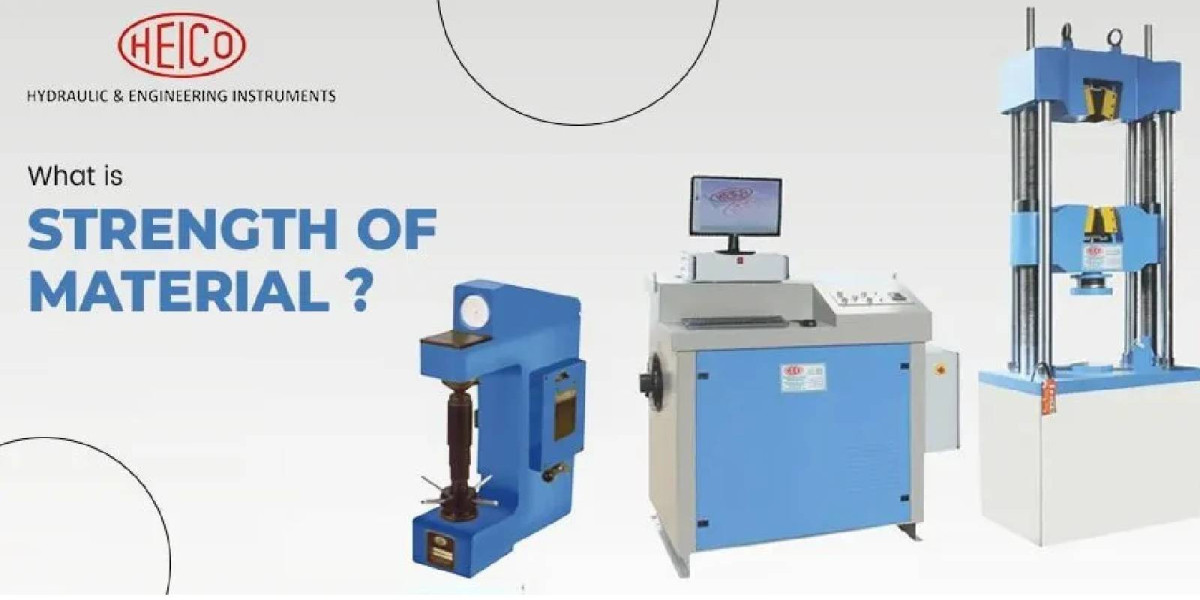The strength of materials is a vital aspect of engineering, construction, and manufacturing. It determines how materials respond under different forces and ensures their durability, reliability, and safety. By employing advanced testing methods, industries can assess materials' mechanical properties and guarantee their suitability for various applications. This article highlights the top techniques for testing material strength, focusing on compressive strength tests and the tools involved.
Understanding the Strength of Materials
The strength of materials refers to their ability to withstand external forces without deformation or failure. This includes tensile strength (pulling force), compressive strength (pushing force), and shear strength (parallel sliding force). Engineers and manufacturers rely on these properties to design products and structures that meet safety and performance standards.
Importance of Compressive Strength Tests
Among the many tests for assessing material strength, the compressive strength test is one of the most significant. This test evaluates a material's ability to resist compression or squeezing forces. It is especially critical in construction materials like concrete, metals, and ceramics.
The test involves applying a gradual force to a material sample until it breaks or deforms. The results indicate the material's compressive strength, helping engineers determine its suitability for load-bearing applications.
Role of Compressive Strength Testing Machines
A compressive strength testing machine is essential for accurate and reliable testing. These machines are designed to apply controlled pressure on test specimens while recording data. Key features of a good testing machine include:
High precision: Accurate measurement of applied forces.
Versatility: Ability to test various materials like concrete, metals, and plastics.
Durability: Designed for repeated use without compromising accuracy.
Compliance: Meets international testing standards such as ASTM and ISO.
Other Common Techniques for Strength Testing
Tensile Strength Testing: Measures the material's ability to withstand pulling forces.
Flexural Strength Testing: Evaluates how materials resist bending or flexural stress.
Impact Testing: Assesses a material's ability to absorb energy during a sudden impact.
Hardness Testing: Determines the material's resistance to surface indentation or scratching.
Applications of Material Strength Testing
Construction: Ensures materials like concrete and steel can withstand heavy loads.
Aerospace: Confirms lightweight materials can endure high stress and pressure.
Automotive: Tests the durability of metals and plastics in vehicles.
Manufacturing: Guarantees the quality and performance of components.
Why Choose Heicoin for Material Strength Testing?
For industries seeking reliable solutions to test the strength of materials, Heicoin stands out as a trusted name. With a comprehensive range of compressive strength testing machines, Heicoin ensures precision, compliance, and efficiency. Their machines are designed to meet global standards, making them ideal for diverse applications across industries.
Conclusion
Testing the strength of materials is crucial for creating safe and durable products. With advanced techniques like the compressive strength test and the right tools, industries can ensure top-notch material performance. Choose Heicoin for state-of-the-art testing equipment that guarantees accurate results and enhances your quality control process.








